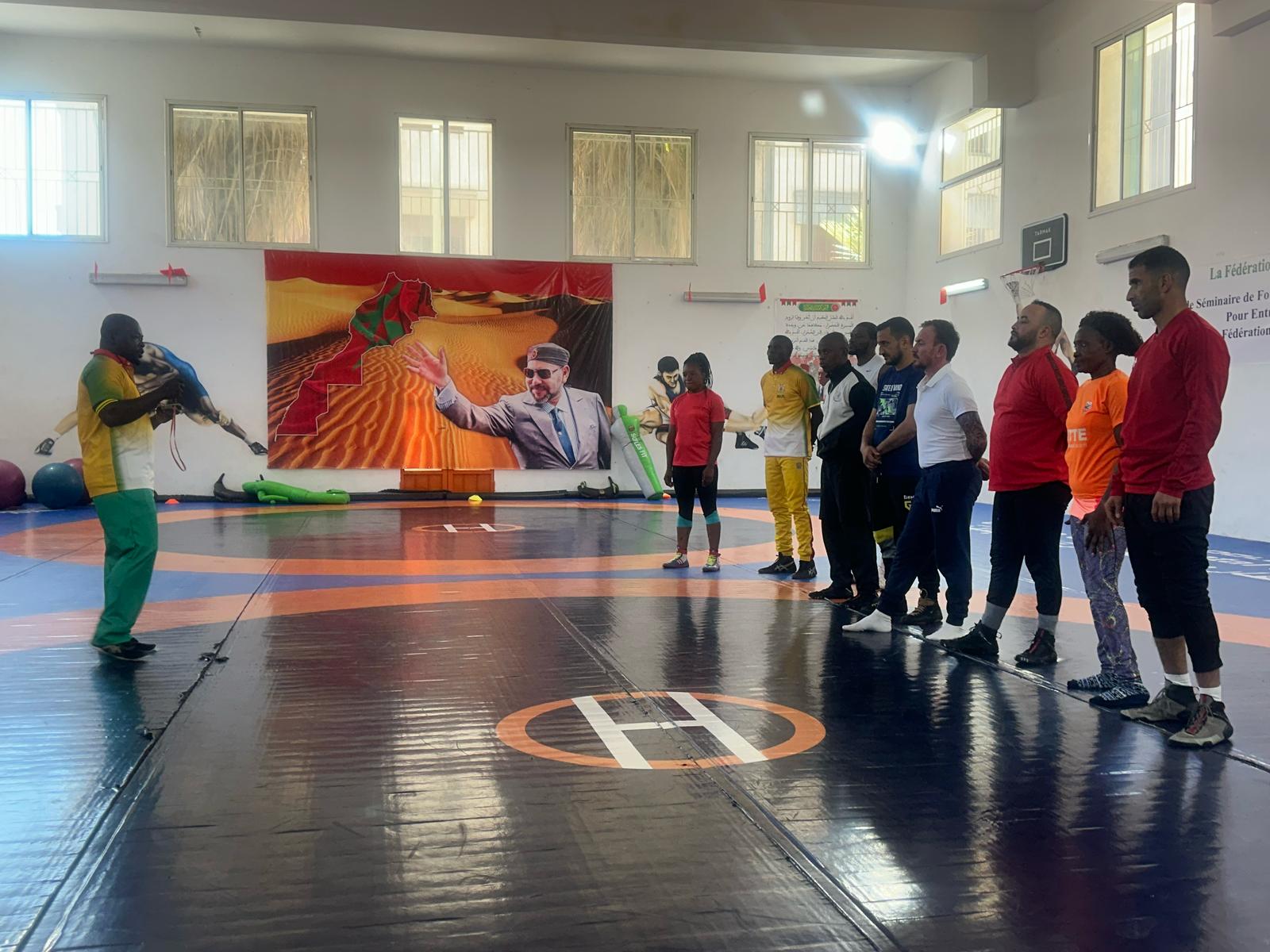2025 UWW Pat Shaw Memorial concludes in Guatemala City
Tuesday, June 3, 2025 - 11:30 By United World Wrestling Press

GUATEMALA CITY, Guatemala (June 2) -- The 2025 UWW Pat Shaw Memorial - Regional Education Development Tournament (REDT) successfully concluded once again in Guatemala City, continuing the tradition of excellence in wrestling development across the Americas.
From May 26 to June 1, athletes, coaches, referees, and officials gathered at the Center for High-Performance and Development of America (CARDA) and the Erick Barrondo Sports Complex for a week of intensive educational activities and training camps. The event offered a unique platform where participants could simultaneously improve their technical, pedagogical, and competitive skills.
The coaches’ course was conducted under the leadership of Iranian expert Professor Reza AZIMI, assisted by Ardeshir ASGARI (NCA), who also supported with translation. A total of 22 coaches from 11 countries took part in these sessions, which combined theoretical classes with practical on-mat application, allowing for immediate implementation of newly acquired knowledge.
In parallel, the referees’ course was led by Guatemalan international referee Hugo FIGUEROA, with the participation and support of UWW Referee Commission Member Rafael GALVA LEBRON (Puerto Rico). A total of 13 referees from 9 countries attended the seminar, actively engaging in discussions, case studies, and on-mat evaluations.
Throughout the entire week, participants demonstrated strong enthusiasm and commitment, sharing experiences and strengthening the regional wrestling community.
The educational portion of the event officially opened on May 26, with an inauguration ceremony attended by several dignitaries, including Ramón Francisco GONZÁLEZ PINEDA, President of the Guatemalan Wrestling Federation, and Francisco Eduardo LEE LÓPEZ, President of United World Wrestling Americas, who addressed all participants with words of encouragement.
The training camp allowed athletes from across the continent to train together, guided by both educators and coaches from the participating nations. Thanks to the excellent facilities at CARDA and the availability of five official mats, strength and conditioning areas, saunas, and recovery facilities, athletes were able to prepare under optimal conditions.
 Wrestlers warm up and get ready to compete at the XXXIV "Pat Shaw" Memorial Cup. (Photo: United World Wrestling)
Wrestlers warm up and get ready to compete at the XXXIV "Pat Shaw" Memorial Cup. (Photo: United World Wrestling)
The week culminated with the XXXIV "Pat Shaw" Memorial Cup, held on May 31 and June 1. This year’s competition featured 619 matches across three wrestling styles: Freestyle (FS), Greco-Roman (GR), and Women’s Wrestling (WW), in four age groups: Senior, U20, U17, and U15. Over 308 athletes from 16 countries competed, including delegations from Barbados, Brazil, Chile, Costa Rica, Dominican Republic, El Salvador, Guatemala, Honduras, Israel, Jamaica, Mexico, Nicaragua, Panama, Peru, Puerto Rico, and the United States.
The entire competition was managed using UWW’s official Arena system, with full implementation of the latest UWW standards in terms of competition management, medical protocols, anti-doping education, and technological support, with valuable collaboration from the UWW Americas T&R team.
The Pat Shaw Memorial - Regional Education Development Tournament continues to serve as a cornerstone for the development of wrestling in the Americas, providing athletes, coaches, and referees an invaluable opportunity for growth within a fully integrated educational and competitive framework.
United World Wrestling firmly believes that programs like these represent the ideal path for sustainable development, offering new generations of participants access to high-level international events while enhancing both their technical and personal growth within our sport.


 Participants walk through a training session with UWW Development Officier, Vincent AKA. (Photo: United World Wrestling)
Participants walk through a training session with UWW Development Officier, Vincent AKA. (Photo: United World Wrestling)
Share your thoughts.
Comments